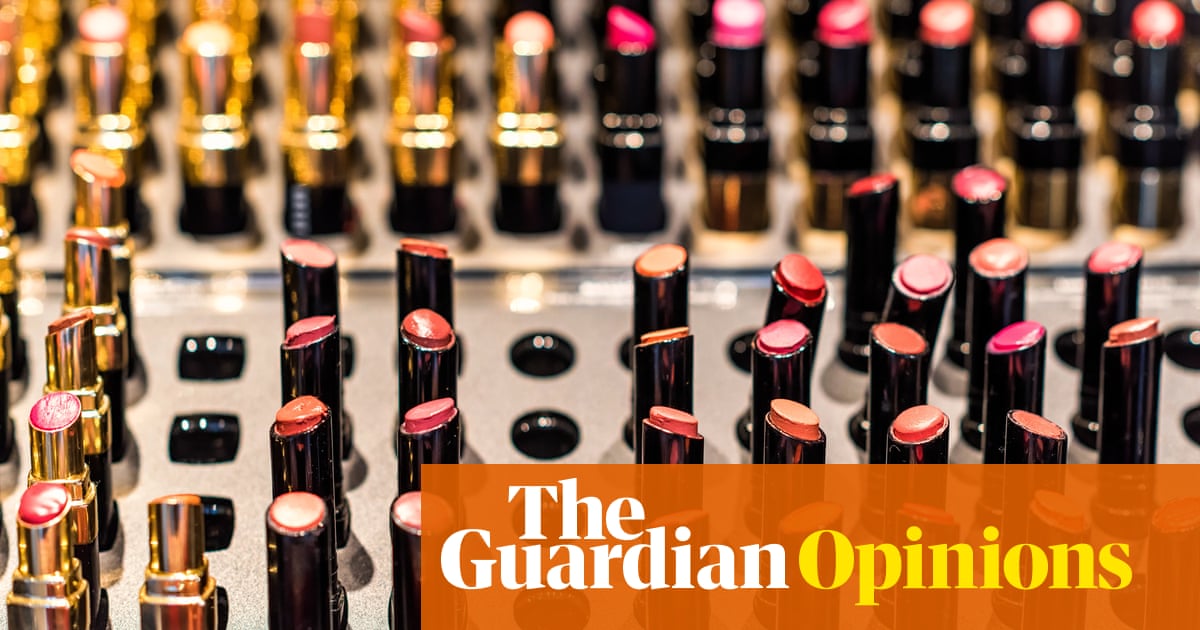
As I chatted away with a bride-to-be, gently dabbing blusher along her cheeks and lifting her lashes with mascara, I felt proud to have found a home within the beauty industry. But as time went on, the glamorous facade of working at makeup counters started to wear thin and what started as a love affair with the industry turned sour.
I’ve always been a creative person and had been drawn to beauty since I was a teenager. But with most top makeup courses not covered by student loans and costing in the region of £20,000 for a year, formal training felt completely out of my grasp.
Aged 18, I set my sights on working as cover staff on makeup counters instead, learning as much as I could about makeup techniques on YouTube in the meantime. Soon after, I got through the application process to work on counters in luxurious department stores. I was over the moon.
The offer was accompanied by a strict dress code policy: a skirt, suit jacket, five-inch heels, red or nude nail varnish, a pearl necklace with matching earrings and red lipstick. The look was far from my usual aesthetic, but I’d been working in hospitality since the age of 16 and was excited to try a more glamorous look, even if it left me out of pocket.
Standing behind the glossy, branded counters I felt proud of my appearance, and thrived helping customers to feel confident. I especially liked helping people feel more confident about their skin concerns. As someone who suffered from acne, I knew how a touch of foundation, or the right concealer, could make all the difference to your self-esteem. Working with makeup all day felt like a dream. It was exciting, challenging and I would look forward to moving to different brands each shift: Dior, Charlotte Tilbury, Nars or Laura Mercier – brands I dreamed of being able to afford that felt that little more attainable now I was earning a wage.
But as my experience grew, so did the hours I was expected to work. My knees would tremble with pain from enduring a 12-hour shift in heels on hard marble floors. My feet would rub so raw in my shoes they would often bleed. I once tearfully asked my manager if I could change into flats – I was told I could go and buy some lower heels on my lunch break. Flats were banned unless you were injured, she said. So, left with no other options, I started inventing a foot injury just to be able to get through the day.
Managers scrutinised my appearance in a way that completely blindsided me. Sometimes I would turn up to a counter with a full face of makeup, only to be given a mirror, hairbrush and different lipstick shade and told to make myself look more presentable. On other days, I would be congratulated for looking incredible, even though I couldn’t see a difference. The unpredictability fuelled insecurities about how I looked, and I started to dread turning up to work. The job, which had once ignited such passion and creativity in me, had became less and less about skill and more about my physical appearance.
My colleagues could be cutthroat, too. Cover staff weren’t entitled to earn commission on sales, and full-time employees would regularly snatch products out of my hands so they could be rung up on the till under their IDs. Others would insist I redo my makeup or patronise me by asking if I knew what certain products were. The toxic atmosphere began to have an impact on my mental health and I started to withdraw into myself. I started being reprimanded for not being bubbly or outgoing enough, once even crying at the station after weathering yet more criticism. Another manager pulled me up on that too – employees shouldn’t be crying on the shop floor, she said.
I never planned to quit the beauty industry. But four years after starting, one particular shift made me walk out for good. It had been a long day, and knowing I would be run off my feet, I had brought a bottle of water with me from home. My manager watched me as I went to retrieve it from the cupboard on my lunch break. “Are you looking for your water bottle?” she asked. I nodded as she opened the bin. “It’s in there. That’s what you get for bringing plastic on to my counter. I only accept glass,” she said. “You can get it out of the bin if you really want it.” That was the final straw that made me realise this job wasn’t worth sacrificing my mental health for.
Ten years on, the level of scrutiny I received on my personal appearance continues to have an impact on my self-esteem. At a formative age, I was exposed to a toxic culture around beauty standards and I still find myself being overly critical about how I look. Walking back into department stores is enough to fill me with dread. I’m much more comfortable ordering online.
For me, beauty has always been about so much more than appearance. I view makeup as a tool to enhance, empower and give confidence, but that balance is so easily shifted when it’s weaponised to determine your value. I still love makeup but quitting the industry has helped me feel much more in control of my image. Now, I recognise my value is so much more than how I look.
Elizabeth McCafferty is a writer on wellness












